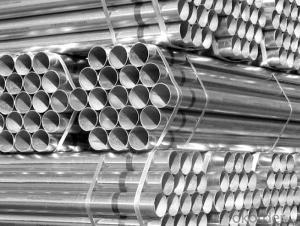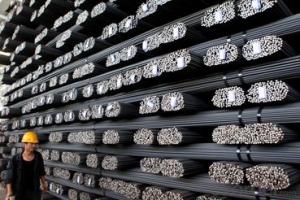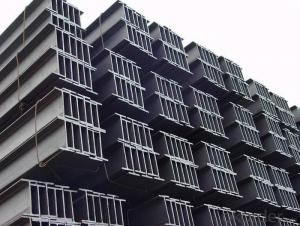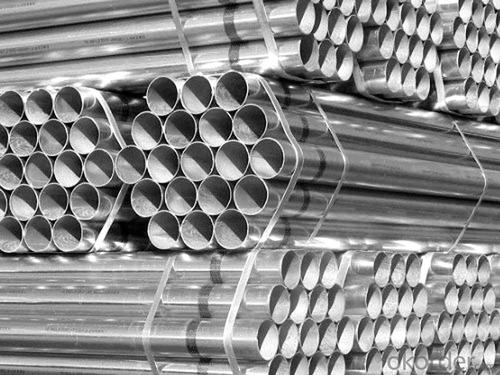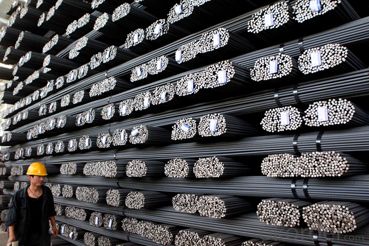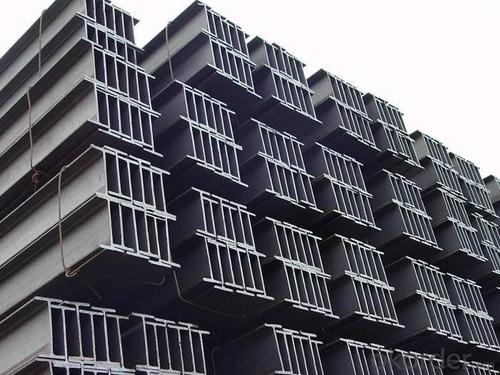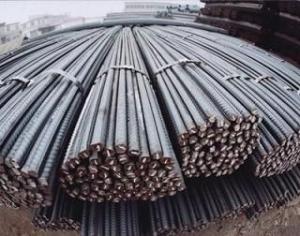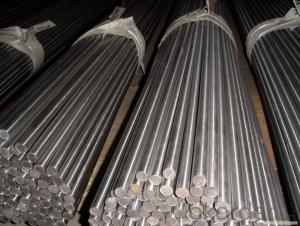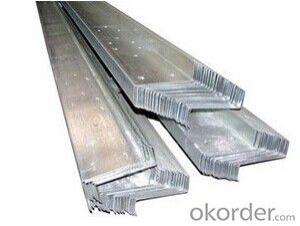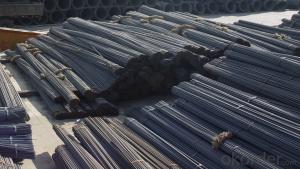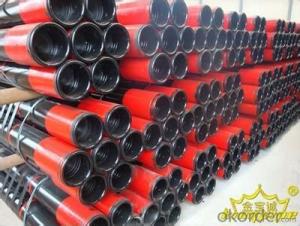Steels Manufacture Building Material with Good Quality
- Loading Port:
- Tianjin
- Payment Terms:
- TT OR LC
- Min Order Qty:
- 100 m.t
- Supply Capability:
- 1000 m.t/month
OKorder Service Pledge
OKorder Financial Service
You Might Also Like
1.Packaging & Delivery
Packaging Detail: | in bundles or as customer's requirement |
Delivery Detail: | Within 30days after receiving your deposit or copy of L/C |
2.Specifications
HRB400,HRB500 Steel Rebars
1.China direct supplier
2.Best service
3.Competitive price
4.Quantity assured
3.Product Description
Name | High Tensile Export Reinforcing Steel Bar ,Deformed Steel Bar ,HRB400B,HRB,46B,HRB500 Building Construction Material |
Standard | ASTM A615 /BS BS 4449 /GB HRB/ JIS G3112 |
Grade | A615 Gr40/60/75 BS 4449 Gr460,B500 GB HRB335,HRB400 ,HRB500
JIS G3112 SD390
|
Diameter | 6mm-40mm |
Length | 6-12m |
Technique | Low temperature hot-rolling reinforcing deformed steel rebar |
Tolerance | As the standard or as your requirement |
Application | Building, construction, road, bridge,etc |
Certificated | BV |
MOQ | 500tons per size steel rebar |
Packing details | Steel rebar packed in bundle or as your requirement |
Delivery | Within 30 days after deposit |
Payment | T/T or L/C |
4.Chemical Composition
Grade | Technical data of the original chemical composition (%) | |||||||
C | Mn | Si | S | P | V | |||
HRB400 | ≤0.25 | ≤1.60 | ≤0.80 | ≤0.045 | ≤0.045 | 0.04-0.12 | ||
Physics capability | ||||||||
Yield Strength(N/cm2) | Tensile Strength(N/cm2) | Elongation (%)
| ||||||
≥400 | ≥470 | ≥14 | ||||||
Grade | Technical data of the original chemical composition (%) | |||||||
C | Mn | Si | S | P | V | |||
HRB500 | ≤0.25 | ≤1.60 | ≤0.80 | ≤0.045 | ≤0.045 | 0.04-0.12 | ||
Physics capability | ||||||||
≥500 | ≥630 | ≥12 | ||||||
5. Theorectical weight
Diameter (MM) | Cross Sectional Area (MM2) | Theorectical Weight (KG/M) | Weight of 12M Bar (KG) | A Ton Contains 12M Bars (PCS) |
6 | 28.27 | 0.222 | 2.664 | 375.38 |
8 | 50.27 | 0.395 | 4.74 | 210.97 |
10 | 78.54 | 0.617 | 7.404 | 135.06 |
12 | 113.1 | 0.888 | 10.656 | 93.84 |
14 | 153.9 | 1.21 | 14.52 | 68.87 |
16 | 201.1 | 1.58 | 18.96 | 52.74 |
18 | 254.5 | 2 | 24 | 41.67 |
20 | 314.2 | 2.47 | 29.64 | 33.74 |
22 | 380.1 | 2.98 | 35.76 | 27.96 |
25 | 490.9 | 3.85 | 46.2 | 21.65 |
28 | 615.8 | 4.83 | 57.96 | 17.25 |
32 | 804.2 | 6.31 | 75.72 | 13.21 |
36 | 1018 | 7.99 | 98.88 | 10.43 |
40 | 1257 | 9.87 | 118.44 | 8.44 |
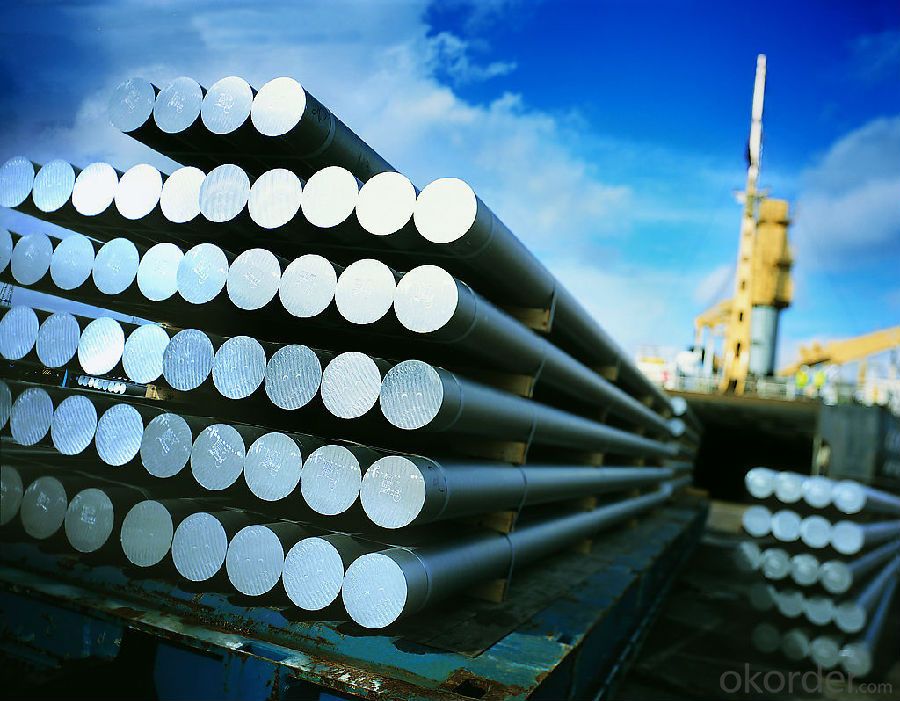
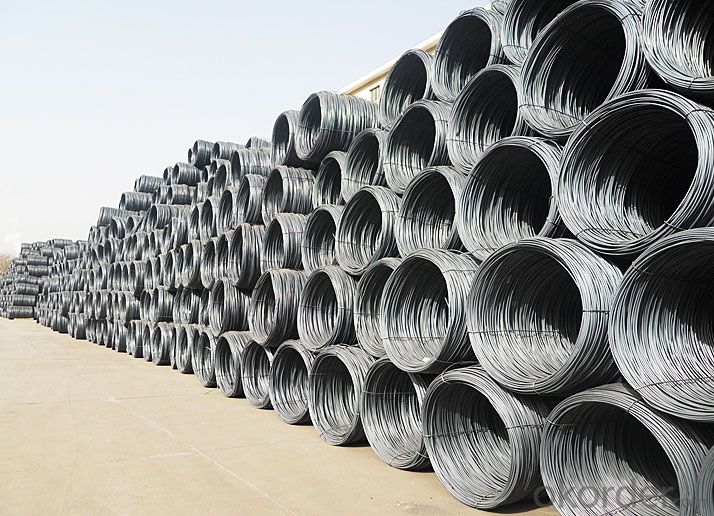
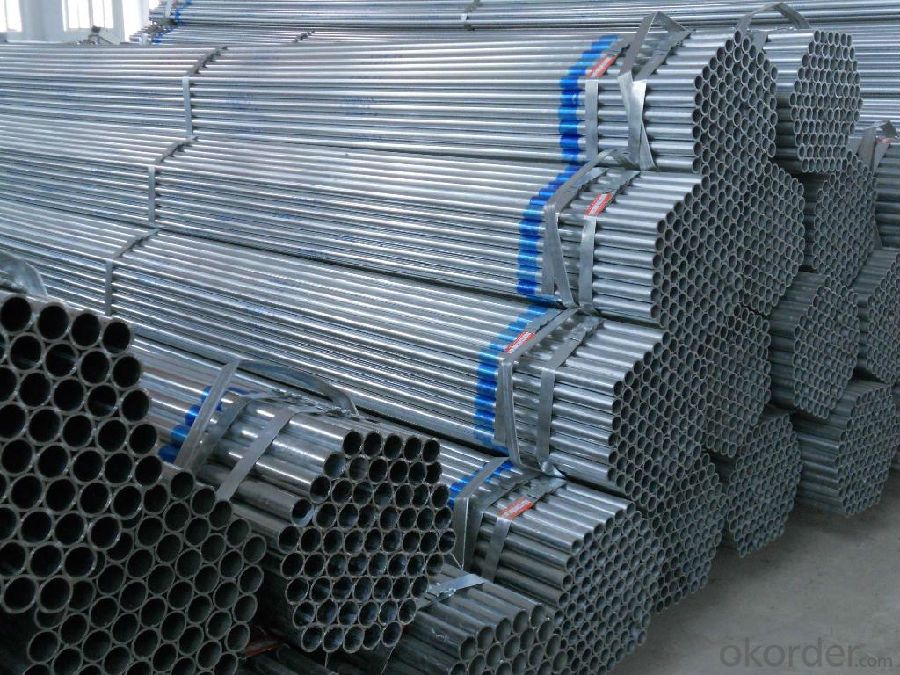
- Q: How are steel pipes used in the construction of wastewater treatment plants?
- Steel pipes are commonly used in the construction of wastewater treatment plants due to their durability, strength, and corrosion resistance. These pipes are used to transport wastewater from different points within the treatment plant, such as pipes for raw sewage, sludge, and treated water. Additionally, steel pipes are also used for structural purposes, such as supporting tanks and other equipment. Overall, steel pipes play a crucial role in the efficient and reliable operation of wastewater treatment plants.
- Q: Material of welded steel pipe
- GB/T3091-1993 (galvanized steel pipe for low pressure fluid delivery). Mainly used to transport water, gas, air, oil and heating, hot water or steam, etc. generally lower pressure fluid and other use tube. Its representative material is Q235 grade a steel.
- Q: Can steel pipes be used for transporting liquids and gases?
- Yes, steel pipes can be used for transporting both liquids and gases. Steel pipes are known for their durability, strength, and resistance to corrosion, making them suitable for a wide range of applications, including the transportation of fluids and gases. They are commonly used in industries such as oil and gas, water supply, sewage systems, and chemical processing plants. Steel pipes provide a reliable and efficient means of conveying liquids and gases over long distances, ensuring the safe and efficient transportation of these substances.
- Q: What are the different types of steel pipe reducers?
- There are several types of steel pipe reducers, including concentric reducers, eccentric reducers, and reducing tees.
- Q: Can steel pipes be used for wastewater treatment?
- Indeed, wastewater treatment can make use of steel pipes. The construction of wastewater treatment plants and systems frequently incorporates steel pipes owing to their robustness, resilience, and resistance to corrosion. Their exceptional suitability lies in their capacity to handle the transportation and distribution of wastewater, given their ability to withstand substantial pressure and temperature fluctuations. Moreover, steel pipes have the potential to be coated or lined with materials that offer supplementary protection against corrosion and chemical reactions with the wastewater. Nonetheless, it is crucial to ensure the adequate upkeep, inspection, and replacement of steel pipes when required, to avert potential leaks or failures that could jeopardize the wastewater treatment process.
- Q: How do you calculate the pipe buoyancy for steel pipes in water?
- In order to determine the buoyancy of steel pipes in water, one must take into account the weight of the water displaced by the submerged part of the pipe. This can be achieved by applying Archimedes' principle, which states that the buoyant force on an object submerged in a fluid is equal to the weight of the fluid displaced by the object. Firstly, the volume of the submerged portion of the pipe needs to be calculated. This can be accomplished by multiplying the cross-sectional area of the pipe by the length of the submerged part. Next, the density of the water surrounding the pipe must be determined. Typically, this value is approximately 1000 kg/m³ for freshwater and slightly higher for seawater. To find the weight of the water displaced, multiply the volume of the submerged portion of the pipe by the density of the water. Lastly, compare the weight of the water displaced to the weight of the steel pipe. If the weight of the water displaced is greater than that of the pipe, the pipe will exhibit buoyancy and tend to float. Conversely, if the weight of the pipe is greater, it will sink. It is worth noting that factors such as pipe design, wall thickness, and external forces acting upon the pipe may also impact its buoyancy. Therefore, it is advisable to consult industry-specific guidelines or seek professional advice for precise calculations in specific scenarios.
- Q: How do steel pipes handle high-velocity flow?
- Steel pipes are able to handle high-velocity flow due to their strong and durable nature. The smooth inner surface of steel pipes allows for efficient and smooth flow of fluids, minimizing frictional losses. Additionally, steel pipes have high tensile strength, enabling them to withstand the pressure exerted by high-velocity flow without deformation or bursting.
- Q: Can steel pipes be used for underground gas storage?
- Yes, steel pipes can be used for underground gas storage. Steel pipes are commonly used for transporting and storing various types of gases, including natural gas, due to their strength, durability, and resistance to corrosion. They are able to withstand high pressures and can be designed to meet the specific requirements of underground gas storage facilities. Additionally, steel pipes can be coated or lined with materials to further enhance their resistance to corrosion and to prevent any potential leaks. However, it is important to ensure that proper safety measures and regulations are followed during the construction and operation of underground gas storage facilities to prevent any potential risks or hazards.
- Q: How are steel pipes marked for identification?
- Pipe marking is a process used to identify steel pipes. This process involves placing labels or markers on the pipes' surface to provide important information about their specifications and characteristics. The labels typically include details such as the size, grade, material composition, manufacturer's logo or name, and any relevant codes or standards. These markings are crucial for proper identification and ensure that the right pipes are used for specific applications, as well as for maintenance and repair purposes. Furthermore, the markings also assist with quality control and traceability, making it easy to identify and track the pipes throughout their lifespan. In summary, using clear and durable marking systems to identify steel pipes is vital for safety, efficiency, and compliance in various industries where these pipes are used.
- Q: How are steel pipes used in the construction of water treatment plants?
- Steel pipes are widely used in the construction of water treatment plants due to their numerous advantages and suitability for this specific application. These pipes are utilized in various ways to ensure the efficient and reliable functioning of water treatment facilities. Firstly, steel pipes are commonly used in the transportation of water from its source to the treatment plant. They are highly durable and can withstand high pressure, ensuring the safe and secure delivery of water over long distances. Steel pipes are also resistant to corrosion, which is crucial in preventing contamination of the water supply. Within the treatment plant, steel pipes are used in the distribution system to transport water to different treatment processes. They are often laid underground or within the facility's infrastructure, ensuring a seamless flow of water between different treatment units. Steel pipes are known for their high strength and structural integrity, making them suitable for this purpose. Furthermore, steel pipes are used in the construction of various water treatment equipment. For instance, they are utilized in the construction of sedimentation tanks, where water is allowed to settle, and impurities are removed. Steel pipes are also used in the construction of filtration systems, where water passes through different layers of filters to remove contaminants. Another important application of steel pipes in water treatment plants is in the construction of pumping stations. These stations are responsible for maintaining the water flow throughout the treatment process. Steel pipes are employed in the design and construction of the pumping systems to ensure the efficient movement of water between different stages of treatment. In summary, steel pipes play a crucial role in the construction of water treatment plants. They are used for the transportation of water, distribution within the facility, construction of treatment equipment, and in the design of pumping stations. Their durability, resistance to corrosion, and high strength make them an ideal choice for this critical infrastructure.
Send your message to us
Steels Manufacture Building Material with Good Quality
- Loading Port:
- Tianjin
- Payment Terms:
- TT OR LC
- Min Order Qty:
- 100 m.t
- Supply Capability:
- 1000 m.t/month
OKorder Service Pledge
OKorder Financial Service
Similar products
Hot products
Hot Searches
Related keywords
